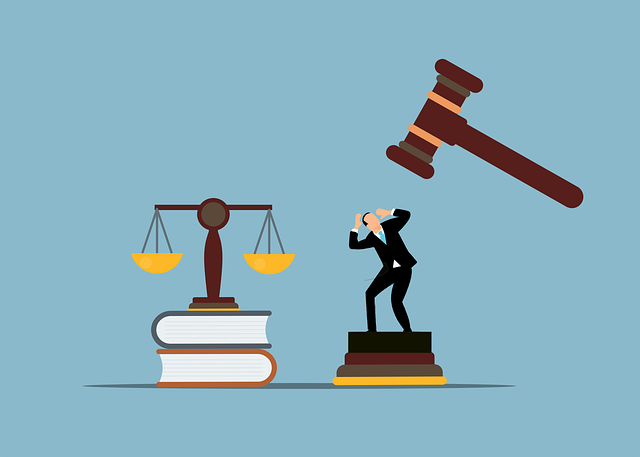Criminal Defense Attorneys are essential in protecting individuals' rights within the legal system, specializing in challenging evidence, interrogating witnesses, and crafting defenses for various charges. While minor offenses may be manageable without representation, serious cases require specialized knowledge, especially in intellectual property law, where attorneys guide clients through complex steps to file lawsuits, ensuring rights protection. Engaging a criminal defense team is crucial for high-stakes charges, involving open communication, case preparation, and strategic collaboration. Attorneys use tactics like negotiating plea bargains and challenging evidence to ensure fair trials, navigating labyrinthine legal systems, particularly in white-collar crimes and intellectual property offenses.
Criminal Defense Attorneys play a pivotal role in ensuring fairness within the criminal justice system. This article delves into their crucial expertise, guiding you through understanding their core functions and the signs indicating the need for legal representation. We explore the process of engaging a defense team, the strategies they employ, and provide a case study on navigating intellectual property lawsuits—a specialized area requiring adept criminal defense skills. Learn the steps to file an intellectual property lawsuit, enhancing your awareness in this complex landscape.
- Understanding Criminal Defense Attorneys: Their Role and Expertise
- When to Hire a Criminal Defense Attorney: Recognizing the Need
- The Process of Engaging a Criminal Defense Team
- Legal Strategies Employed by Criminal Defense Attorneys
- Navigating Intellectual Property Lawsuits: A Case Study for Criminal Defense Attorneys
Understanding Criminal Defense Attorneys: Their Role and Expertise

Criminal Defense Attorneys play a pivotal role in safeguarding individuals’ rights within the legal system. Their expertise lies in navigating complex criminal laws and procedures to ensure a fair trial for their clients. These attorneys are not just advocates; they serve as guides, protecting the interests of both corporate and individual clients accused of various crimes. From minor misdemeanors to intricate white-collar cases, their skills are invaluable.
Understanding their role involves recognizing that these legal professionals employ strategic maneuvers to challenge evidence, interrogate witnesses, and construct robust defenses. Their goal is not merely to avoid punishment but to achieve extraordinary results by exonerating the innocent and securing favorable outcomes for those facing criminal charges. This includes knowing the ins and outs of procedural steps—a critical aspect when considering actions like Steps to File Intellectual Property Lawsuits, where specialized knowledge can significantly impact the case’s trajectory.
When to Hire a Criminal Defense Attorney: Recognizing the Need

If you find yourself facing criminal charges, whether it’s a misdemeanor or a felony, knowing when to hire a criminal defense attorney is crucial for navigating the legal system effectively. While some minor offenses may be manageable without representation, more serious cases can have significant consequences that extend far beyond the immediate penalty. A qualified lawyer can provide invaluable guidance from the initial stages of an investigation, helping you understand your rights and options.
Recognizing the need for legal counsel is essential, especially in high-stakes cases where the outcome could impact your freedom, reputation, and future prospects. Jury trials, for instance, require extensive preparation and expertise to present a compelling defense. Moreover, those involved in philanthropic or political communities may face unique legal challenges that demand specialized knowledge. Taking the steps to file an intellectual property lawsuit is another area where an attorney’s expertise can be indispensable, ensuring your rights are protected throughout the process.
The Process of Engaging a Criminal Defense Team

Engaging a criminal defense team is a crucial step for anyone facing charges, especially in complex white collar defense or high-stakes cases. The process begins with identifying qualified attorneys who specialize in criminal law. It’s essential to look for lawyers experienced in handling both corporate and individual clients, as the approach may differ based on the nature of the case.
Potential defendants should gather relevant information, such as evidence and legal documents, and be prepared to communicate openly with their chosen attorney. The initial consultation is a chance to discuss the case details, understand potential defenses, and set expectations for representation. This step ensures clients and their defense team are aligned from the start.
Legal Strategies Employed by Criminal Defense Attorneys

Criminal Defense Attorneys employ a wide array of legal strategies to protect their clients’ rights. One common approach is negotiating plea bargains with prosecutors, which can result in reduced charges or lighter sentences. They also leverage their expertise to challenge evidence and witness testimonies, aiming to cast doubt on the prosecution’s case.
Additionally, these attorneys are well-versed in navigating complex laws and regulations, particularly when dealing with corporate and individual clients across the country. Their goal is to achieve extraordinary results by ensuring their clients receive fair trials. This often involves meticulous preparation, including reviewing case law, gathering evidence, and crafting persuasive legal arguments. For instance, when representing clients accused of intellectual property offenses, defense attorneys may employ strategies such as challenging the validity of patents or trademarks, or arguing against excessive damages in a lawsuit, following specific steps to file an intellectual property lawsuit.
Navigating Intellectual Property Lawsuits: A Case Study for Criminal Defense Attorneys

Navigating complex legal landscapes is a key skill for criminal defense attorneys, who often find themselves representing clients accused of white collar and economic crimes. Intellectual property (IP) lawsuits present a unique challenge within this realm, requiring a deep understanding of both the legal principles and the practical steps to file such suits. The process involves meticulous documentation, detailed knowledge of patent, trademark, and copyright laws, and the ability to navigate a labyrinthine legal system.
By studying successful cases and understanding the motivations behind IP lawsuits—which can range from protecting innovations in technology to preserving artistic creations—attorneys can better serve their clients. These suits often span across the country, engaging philanthropic and political communities alike. The key steps to file an intellectual property lawsuit include identifying the specific type of IP violation, gathering compelling evidence, and crafting a solid legal argument. This strategic approach ensures a robust defense, especially considering the potential economic and reputational consequences for those accused.
Criminal defense attorneys play a pivotal role in protecting individuals’ rights within the legal system. By understanding their expertise and processes, you can make informed decisions about hiring them, especially in complex cases like intellectual property disputes. Engaging a skilled criminal defense team involves clear communication of your case details and a thorough assessment of your options. This article has guided you through the essential steps, from recognizing the need for legal representation to navigating potential lawsuits, empowering you with knowledge to ensure the best outcome. Remember, prompt action and expert guidance are crucial when facing criminal charges or intellectual property disputes.






